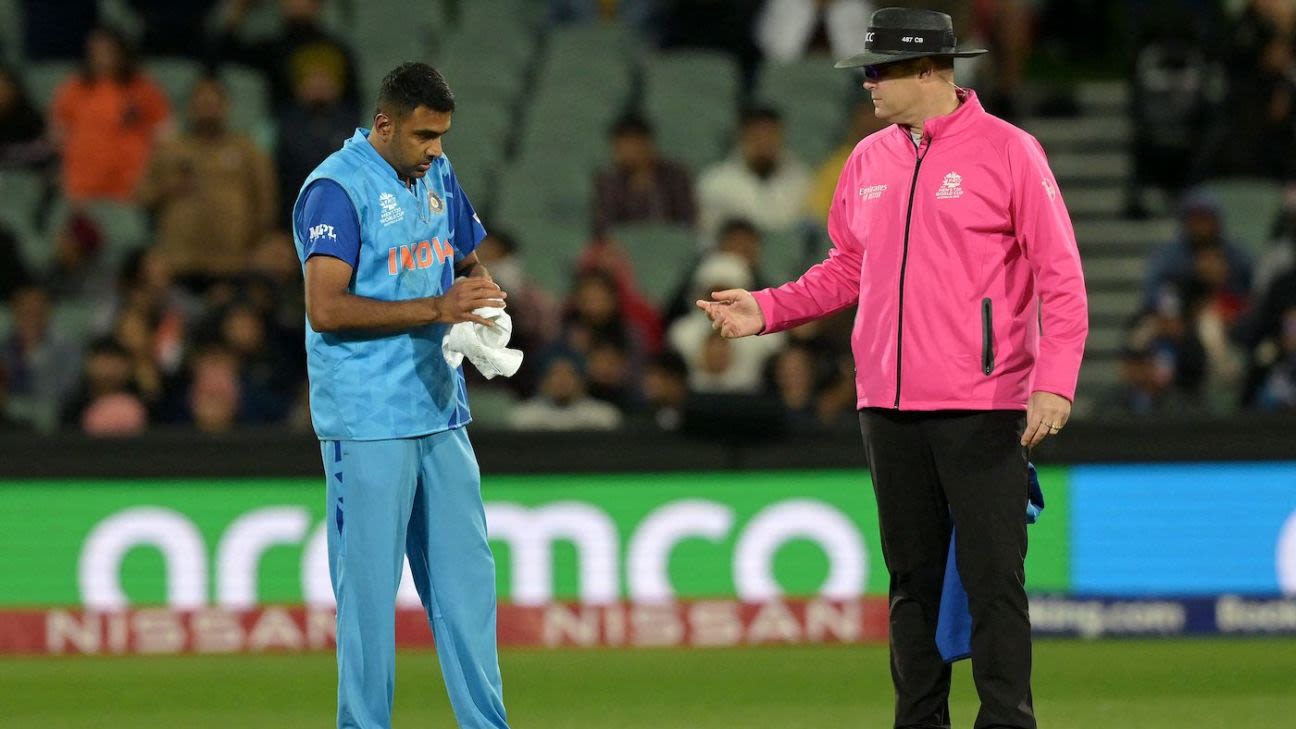
"India batted beautifully on a slow wicket and posted a score well above par. Still they ended up having to fight tooth and nail [to win]," he said. "The quality difference between the teams isn't coming through - dew is narrowing that gap if you happen to lose the toss.
"My suggestion - or rather my opinion - for the World Cup is to look at what venues we are playing in, and at what times. Why shouldn't we start matches at 11.30am during the World Cup?"
Day-night ODIs in India usually begin at 1.30pm, and extend well into the primetime television hours. While starting matches earlier may arguably lead to fairer contests, broadcasters may be against such a move given the potential risk of reduced viewership figures. Ashwin, though, suggested that fans would tune in to watch World Cup matches regardless of timing.
"People will bring up television viewers and broadcasters, and say that people won't latch on and watch at that time, but would they not latch on to World Cup matches?" he asked. "The recent T20 World Cup was also held in winter, prioritising the summer [for Australia's home bilateral season]. It wasn't the ideal scenario - T20 is a fast-paced game, how can you play it in winter? People will say that's not the case in Australia, but still, we need to prioritise World Cups.
"The ICC knows very well that there will be dew, so let's advance the game, and if we start at 11.30am, the dew factor won't come into the game, and why not? Won't all cricket fans prioritise the World Cup and watch matches at 11.30?"
As things stand, Ashwin suggested that teams around the world look at dew as one of the most significant factors in shaping day-night games in India.
"ECB recently invited applications for the analyst's position, and - I came to know this through some analysts I know - one of the important questions they asked was, 'How big a factor is dew in Indian conditions in white-ball cricket?' They're looking to bring in the best analytical tools possible ahead of the 2023 World Cup, and they've asked all the pertinent questions, so you can see how crucial everyone in world cricket thinks the dew factor is in Indian conditions."















 Phone: (800) 737. 6040
Phone: (800) 737. 6040 Fax: (800) 825 5558
Fax: (800) 825 5558 Website:
Website:  Email:
Email: 






